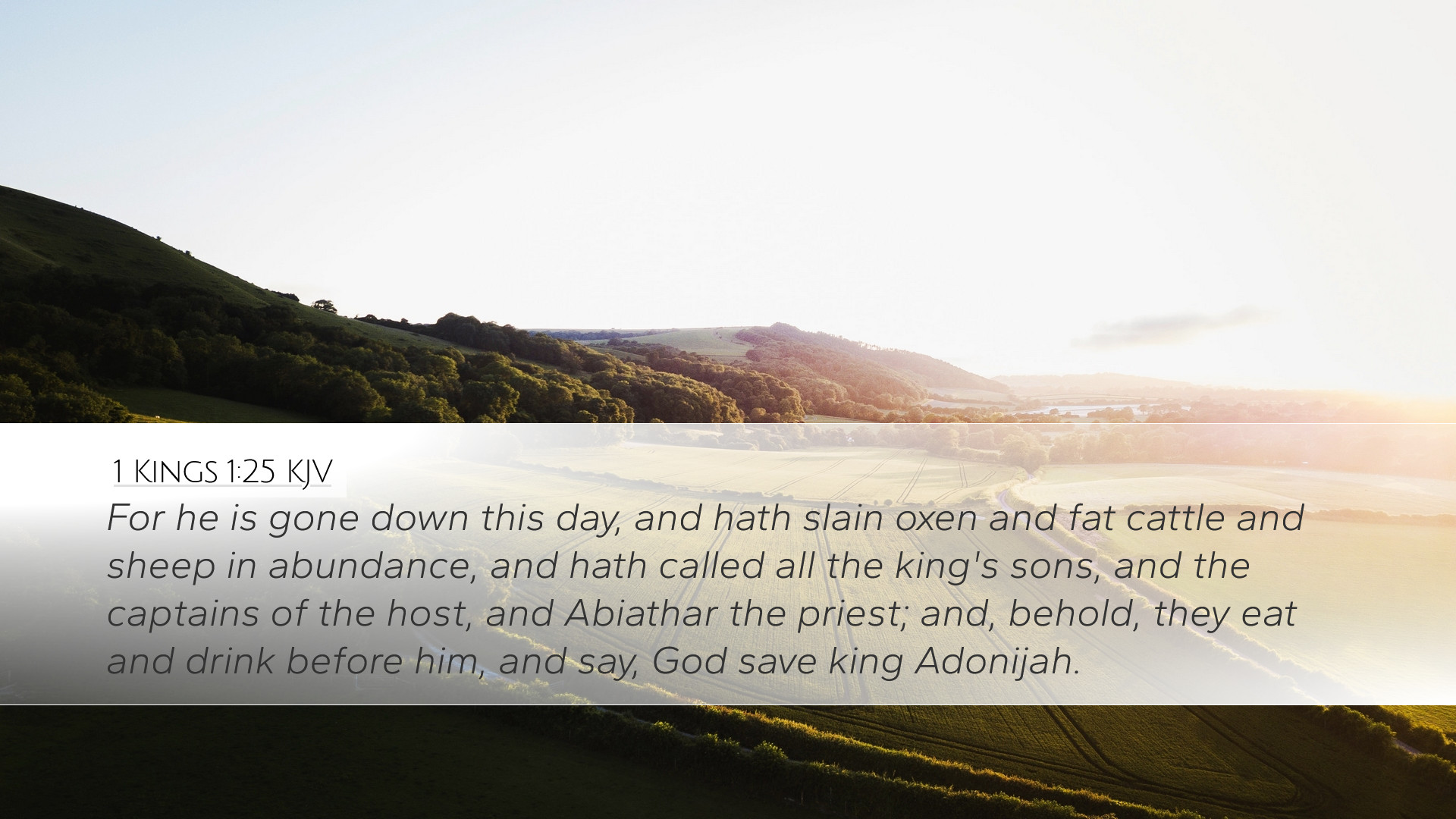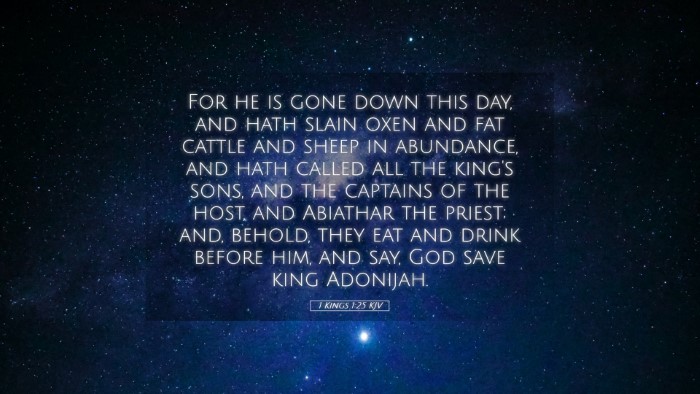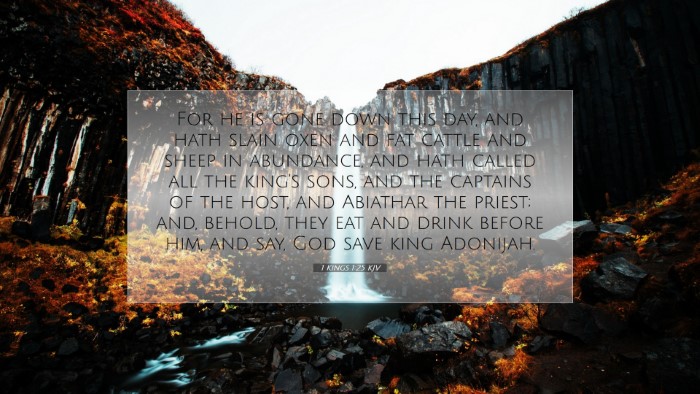Commentary on 1 Kings 1:25
Bible Verse: "For he is gone down this day, and hath slain oxen and fat cattle, and sheep in abundance, and hath called all the king's sons, and the captains of the host, and Abiathar the priest: and, behold, they eat and drink before him, and say, God save king Adonijah."
Contextual Background
This verse is situated in a critical moment in the history of Israel, where the throne succession is a predominant issue. David, in his old age, has not clearly designated a successor, leading to rivalry and conspiracy. Adonijah, David's son, assumes kingship prematurely. This highlights the political turmoil and the familial strife that can arise within a covenant community when leadership succession is not divinely ordained.
The Actions of Adonijah
Willingness to Usurp: Adonijah's actions, as noted in the verse, display a conscious effort to assert his claim to the throne. By hosting a feast with oxen, fat cattle, and sheep, he attempts to garner support and celebrate his self-proclaimed kingship.
- Feasting as Royalty: The lavish feast signifies not just a celebration but also a proclamation of his kingship. In ancient culture, feasting was often associated with royal elections and declarations.
- Political Maneuvering: By inviting the king's sons and military leaders, Adonijah seeks to solidify alliances, a classical strategy in ancient Near Eastern politics.
Public Acknowledgment: The proclamation, "God save king Adonijah," serves as an acknowledgment of his position among those present, reflecting the deep-rooted practice of seeking divine favor on a new king.
The Theological Implications
This scenario illustrates fundamental concerns regarding authority and succession in the biblical narrative—reflecting broader themes of divine sovereignty versus human ambition. John Calvin notes the importance of recognizing God's ultimate authority over the succession of kingship.
Divine Sovereignty vs. Human Ambition
The struggle for power portrayed in this text reminds readers of the dangers of striving for authority outside God’s divine providence.
- Risks of Usurpation: Adonijah’s actions serve as a cautionary tale about human nature's propensity toward pride and ambition.
- God’s Plan Prevails: Ultimately, despite Adonijah’s efforts, it is the will of God that prevails in the selection of Solomon as king, showcasing that God's plans cannot be thwarted by human schemes.
Insights from Commentaries
Matthew Henry's Perspective
Matthew Henry emphasizes the rebellious nature of Adonijah's actions, likening them to an illegitimate claim to power. He notes the spiritual blindness that often accompanies ambition, where individuals forget divine appointment. Henry cautions leaders against the entrapments of pride and self-exaltation.
Albert Barnes' Commentary
In his commentary, Albert Barnes draws attention to the array of people invited by Adonijah, signaling his attempt to consolidate power. Barnes observes the significant role of Abiathar the priest's involvement, highlighting the spiritual dimensions inherent in kingship in ancient Israel and the necessity of divine endorsement.
Adam Clarke's Interpretation
Clarke provides a nuanced interpretation of the social and ritual contexts of such feasts, noting their significance in affirming claims to leadership within a community. He argues that Adonijah's actions illustrate both his ambition and naiveté given the impending conflict over the throne.
The Practical Applications
This passage offers relevant applications for congregational leadership and personal faith journeys:
- God's Sovereignty in Leadership: The church must recognize God’s sovereignty in appointing leaders and must seek His will above human preferences.
- Humility in Service: Leaders are reminded to serve humbly, recognizing that true authority comes from God alone, and any elevation must align with His timeline.
- Awareness of Rivalries: Leadership within any community can be fraught with conflict; thus, maintaining peace and unity in recognizing God-given authority is crucial.
Conclusion
1 Kings 1:25 encapsulates a moment rife with ambition, intrigue, and the assertion of authority, serving as a powerful reminder that God's purposes will ultimately triumph over human scheming. The characters in this narrative offer present-day leaders insights into the nature of authority, the necessity for humility, and the faithfulness of God in the unfolding of history according to His plan.


